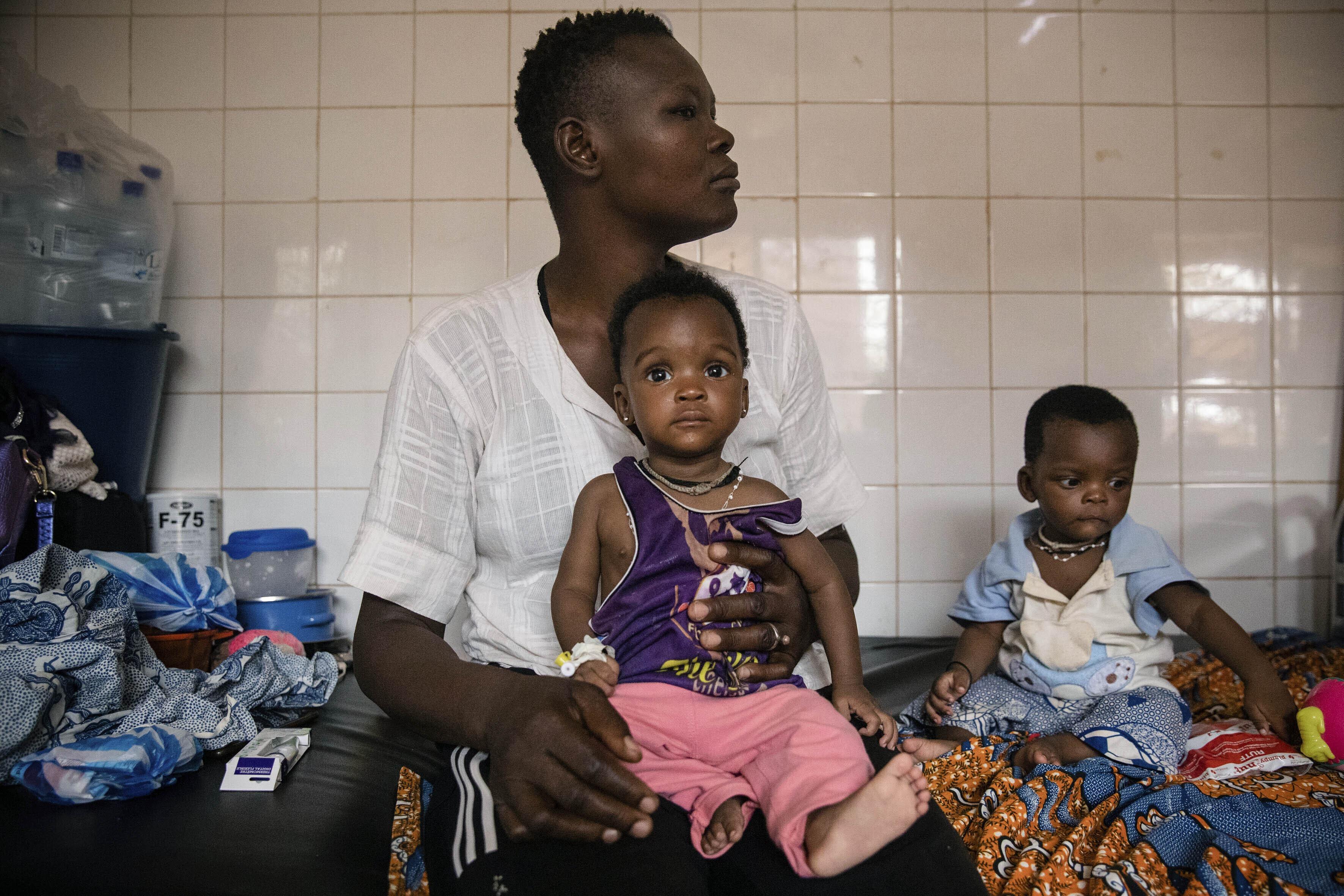 Malnourished children wait for treatment in the pediatrics department of Boulmiougou hospital in Ouagadougou, Burkina Faso, on April 15, 2022. (PHOTO / AP)
Malnourished children wait for treatment in the pediatrics department of Boulmiougou hospital in Ouagadougou, Burkina Faso, on April 15, 2022. (PHOTO / AP)
UNITED NATIONS - The number of people who require urgent food, nutrition and livelihood assistance increased for the fourth consecutive year in 2022 due to conflict, climate change and COVID-19 impacts, according to a report published on Wednesday by the United Nations and its partners.
In Afghanistan, the Democratic Republic of the Congo, Ethiopia, parts of Nigeria and Yemen, more than 40 percent of people lived in crisis or worse
The latest Global Report on Food Crises revealed that approximately 258 million people in 58 countries experienced acute hunger at crisis levels or worse, while individuals in seven countries were at risk of potential starvation.
ALSO READ: UN chief: Afghanistan faces 'largest humanitarian crisis'
Most of the increase is due to a growth in the population analyzed, and this is the highest number in the report's seven-year history.
"More than a quarter of a billion people are now facing acute levels of hunger, and some are on the brink of starvation. That's unconscionable," UN Secretary-General Antonio Guterres wrote in the foreword to the report.
He described this latest edition as "a stinging indictment of humanity's failure to make progress towards Sustainable Development Goal 2 to end hunger and achieve food security and improved nutrition for all."
In Afghanistan, the Democratic Republic of the Congo, Ethiopia, parts of Nigeria and Yemen, more than 40 percent of people lived in crisis or worse. And at some point last year, nearly 60 percent of Somalis faced starvation and destitution.
ALSO READ: Guterres: FAO report indictment of failure to end world hunger
In 30 of the 42 major food crisis contexts analyzed in the report, over 35 million children under five are wasted or acutely malnourished.
Moreover, there are 9.2 million children who suffer from severe wasting, one of the most life-threatening forms of undernutrition.
As conflicts and extreme weather events continue to drive acute food insecurity and malnutrition, the economic fallout from the COVID-19 pandemic and the ripple effects of the Ukraine crisis have become major contributing factors.
ALSO READ: Children dying in Somalia as food catastrophe worsens
There has been a call for a paradigm shift in the international community to focus on addressing the root causes of food crises instead of just responding to their impacts. International organizations, governments, the private sector, regional organizations, civil society and communities will need to come up with innovative approaches.


